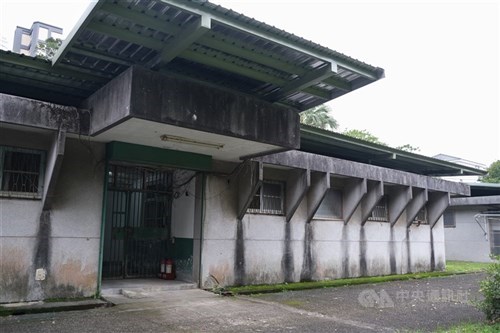Taiwan's Constitutional Court has been largely brought to a standstill since Jan. 25, when new measures passed by the Legislative Yuan and signed into law by President Lai Ching-te (賴清德) requiring a minimum of 10 justices to hear and rule on a case entered into force.
(Full text of the story is now in CNA English news archive. To view the full story, you will need to be a subscribed member of the CNA archive. To subscribe, please read here.)
More in FEATURE
-
![Beyond new clothes: Children in need get private LNY shopping session]() Beyond new clothes: Children in need get private LNY shopping sessionOutside the flagship store of Taiwanese apparel brand NET in downtown Taipei, a queue -- made up of children and their parents -- had formed well before regular opening hours, despite the chilly late-January morning.02/14/2026 04:03 PM
Beyond new clothes: Children in need get private LNY shopping sessionOutside the flagship store of Taiwanese apparel brand NET in downtown Taipei, a queue -- made up of children and their parents -- had formed well before regular opening hours, despite the chilly late-January morning.02/14/2026 04:03 PM -
![How a site of White Terror persecution became a human rights venue]() How a site of White Terror persecution became a human rights venueThe transformation of a dark remnant of Taiwan's authoritarian past into a venue for human rights education began in 2009, with the discovery of dozens of formalin jars containing human body parts inside an abandoned building in New Taipei's Xindian district.02/12/2026 08:24 PM
How a site of White Terror persecution became a human rights venueThe transformation of a dark remnant of Taiwan's authoritarian past into a venue for human rights education began in 2009, with the discovery of dozens of formalin jars containing human body parts inside an abandoned building in New Taipei's Xindian district.02/12/2026 08:24 PM -
![Undocumented migrant worker's high-risk birth exposes major medical gap]() Undocumented migrant worker's high-risk birth exposes major medical gapWhen an undocumented Indonesian caregiver living in Taiwan became pregnant in January 2025, she saw it as a blessing, even though it was unplanned.02/05/2026 12:35 PM
Undocumented migrant worker's high-risk birth exposes major medical gapWhen an undocumented Indonesian caregiver living in Taiwan became pregnant in January 2025, she saw it as a blessing, even though it was unplanned.02/05/2026 12:35 PM
Latest
-
Society
Taiwan headline news
02/21/2026 01:21 PM -
Culture
From studio to hangars: Scale artist paints Army helicopters
02/21/2026 12:09 PM -
Society
Liyu Lake pedal boat operator released on bail after 9-year-old drowns
02/20/2026 08:12 PM -
Society
Frontal weather systems forecast to impact Taiwan Tuesday evening
02/20/2026 07:34 PM -
Society
Vietnamese workers abroad mark Tết through video calls
02/20/2026 07:27 PM


